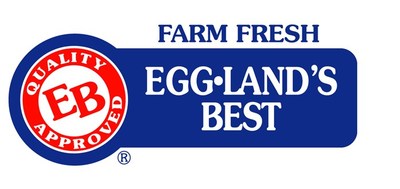American diets aren't colorful enough, according to a new survey from Welch's
- In honor of American Heart
Month, Welch's is reigniting the conversation about the role of
colorful fruits and vegetables in supporting a healthy heart. New survey1 data announced by
Welch's today reveals Americans' confusion about the benefits of incorporating colorful produce
into their diet. Almost half of consumers (44 percent) don't know or aren't sure that specific
colors of fruits and vegetables offer unique health benefits. And, though 63 percent of Americans
know that they should eat colorful produce, only 32 percent often make an effort to include it in
their diet.
 A colorful diet helps ensure you're getting the broadest possible range of
vitamins,
A colorful diet helps ensure you're getting the broadest possible range of
vitamins,
minerals and beneficial plant nutrients, like polyphenols. A perfect example is the
Concord grape, a dark purple powerhouse that delivers many of the same polyphenols
and heart health benefits as red wine, while promoting healthy circulation to keep your
blood pumping and energy flowing. But, for many consumers, fruits and vegetables
in the purple category remain an untapped opportunity. While 73 percent of Americans
know purple fruits and vegetables are an option, only 18 percent of Americans can
name more than three. Currently, only three percent2 of Americans' produce
intake is from the purple and blue category.
"Colorful produce supports a healthy lifestyle, and my goal is to encourage more
people to eat a rainbow of fruits and vegetables. This research shows that
Americans need help learning about their options, especially when it comes to purple
produce," said Amber Pankonin, MS, RDN, LMNT and consultant to Welch's.
"Taking a proactive approach to nutrition doesn't have to be complicated.
In the purple category, 100% grape juice made with Concord grapes is a simple
way to add healthy polyphenols into your diet."
Additional findings from the survey include:
Grape Juice, which counts as two servings (1 cup) of fruit. It contains no added sugar,
color, flavor or preservatives, and serves as an excellent source of the antioxidant vitamin C.
And, because fresh Concord grapes are only available during a short time in the fall,
Welch's 100% Grape Juice is the best way to enjoy their delicious taste and heart-health
benefits all year round.
"During American Heart Month, we encourage people to paint their plates with color,
including purple. Concord grapes are dark purple with a purpose, delivering beneficial
polyphenols that give them their signature color and heart-health benefits," said Casey
Lewis, MS, RD, Welch's Health & Nutrition Lead. "Whether enjoyed in a small glass
or used in your favorite recipe, 100% grape juice made with Concord grapes can be
one tasty way to add more purple fruit to your diet."
To learn more about the research-backed benefits of 100% grape juice made with the
Mighty Concord grape and get easy, heart-healthy recipes and resources, visit www.welchs.com.
About Welch's
Welch's is the processing and marketing subsidiary of the National Grape Cooperative.
Located across America and in Ontario, Canada, the cooperative's approximately
1,000 family farmers own the company and grow the delicious and inherently healthy
Concord grapes used in Welch's juices and other grape-based products. Welch's is
committed to research and development that will meet the growing demand for
products that address consumers' health and nutrition needs. Welch's products are
sold throughout the United States and in approximately 40 countries around the globe.
Welch's is an Equal Opportunity Employer-Minorities/Female/Disabled/Veterans
. www.welchs.com
Contact: Caroline Gould
PadillaCRT for Welch's
804-675-8156
Caroline.Gould@padillacrt.com
colorful fruits and vegetables in supporting a healthy heart. New survey1 data announced by
Welch's today reveals Americans' confusion about the benefits of incorporating colorful produce
into their diet. Almost half of consumers (44 percent) don't know or aren't sure that specific
colors of fruits and vegetables offer unique health benefits. And, though 63 percent of Americans
know that they should eat colorful produce, only 32 percent often make an effort to include it in
their diet.

minerals and beneficial plant nutrients, like polyphenols. A perfect example is the
Concord grape, a dark purple powerhouse that delivers many of the same polyphenols
and heart health benefits as red wine, while promoting healthy circulation to keep your
blood pumping and energy flowing. But, for many consumers, fruits and vegetables
in the purple category remain an untapped opportunity. While 73 percent of Americans
know purple fruits and vegetables are an option, only 18 percent of Americans can
name more than three. Currently, only three percent2 of Americans' produce
intake is from the purple and blue category.
"Colorful produce supports a healthy lifestyle, and my goal is to encourage more
people to eat a rainbow of fruits and vegetables. This research shows that
Americans need help learning about their options, especially when it comes to purple
produce," said Amber Pankonin, MS, RDN, LMNT and consultant to Welch's.
"Taking a proactive approach to nutrition doesn't have to be complicated.
In the purple category, 100% grape juice made with Concord grapes is a simple
way to add healthy polyphenols into your diet."
Additional findings from the survey include:
- While 53 percent of Americans acknowledge that they like 100% fruit juice
- and 93 percent state that heart health is important to them, more than half
- (57 percent) don't realize that 100% grape juice helps support a healthy heart
- and contributes purple fruit to their diet.
- Red wine and 100% grape juice made with Concord grapes share many of the
- same polyphenols. Of the 65 percent of Americans who drink red wine, more
- than two-thirds (67 percent) are willing to swap a glass of wine for a glass of
- 100% grape juice every now and then, since it offers many of the same
- heart-health benefits.
Grape Juice, which counts as two servings (1 cup) of fruit. It contains no added sugar,
color, flavor or preservatives, and serves as an excellent source of the antioxidant vitamin C.
And, because fresh Concord grapes are only available during a short time in the fall,
Welch's 100% Grape Juice is the best way to enjoy their delicious taste and heart-health
benefits all year round.
"During American Heart Month, we encourage people to paint their plates with color,
including purple. Concord grapes are dark purple with a purpose, delivering beneficial
polyphenols that give them their signature color and heart-health benefits," said Casey
Lewis, MS, RD, Welch's Health & Nutrition Lead. "Whether enjoyed in a small glass
or used in your favorite recipe, 100% grape juice made with Concord grapes can be
one tasty way to add more purple fruit to your diet."
To learn more about the research-backed benefits of 100% grape juice made with the
Mighty Concord grape and get easy, heart-healthy recipes and resources, visit www.welchs.com.
About Welch's
Welch's is the processing and marketing subsidiary of the National Grape Cooperative.
Located across America and in Ontario, Canada, the cooperative's approximately
1,000 family farmers own the company and grow the delicious and inherently healthy
Concord grapes used in Welch's juices and other grape-based products. Welch's is
committed to research and development that will meet the growing demand for
products that address consumers' health and nutrition needs. Welch's products are
sold throughout the United States and in approximately 40 countries around the globe.
Welch's is an Equal Opportunity Employer-Minorities/Female/Disabled/Veterans
. www.welchs.com
Contact: Caroline Gould
PadillaCRT for Welch's
804-675-8156
Caroline.Gould@padillacrt.com
[1] Welch's Heart
Health Survey, fielded December 19- 21, 2016 by ORC International
|
[2] Produce For Better
Health Foundation. State of the Plate Study on America's Consumption of Fruits
and
Vegetables. Wilmington, Delaware. 2003. |


